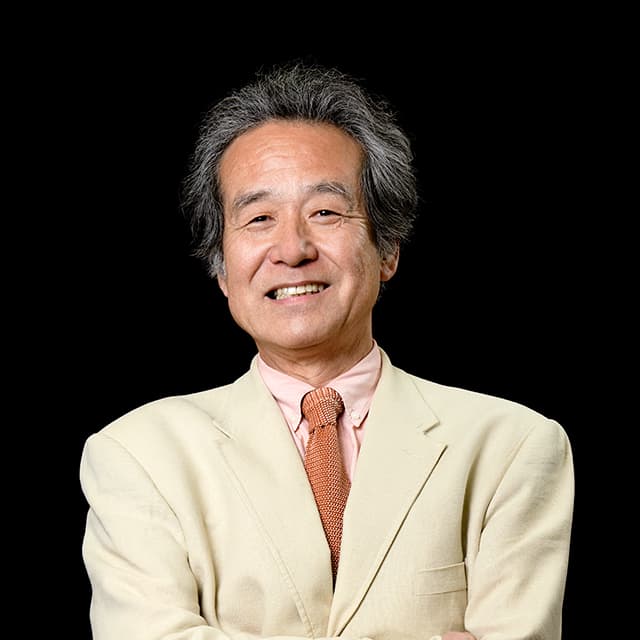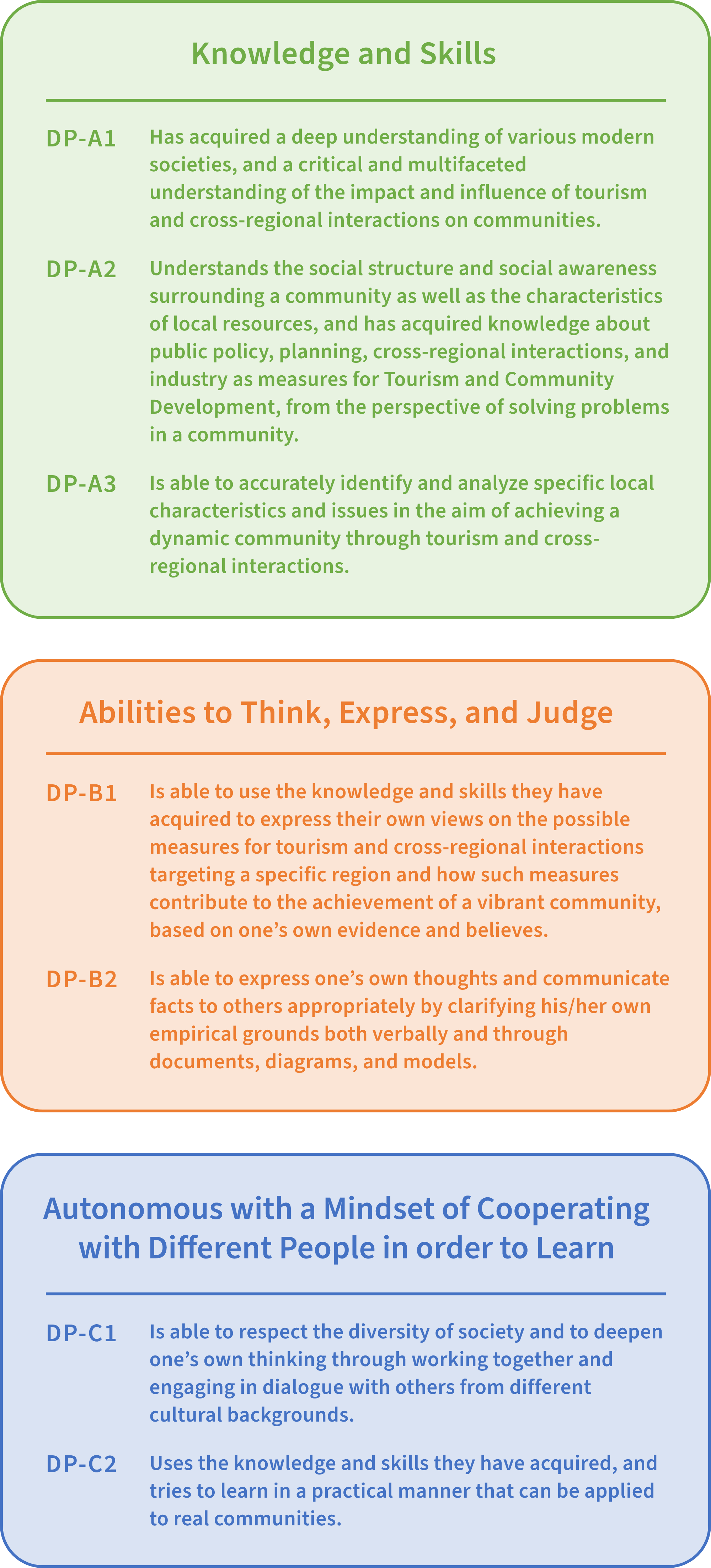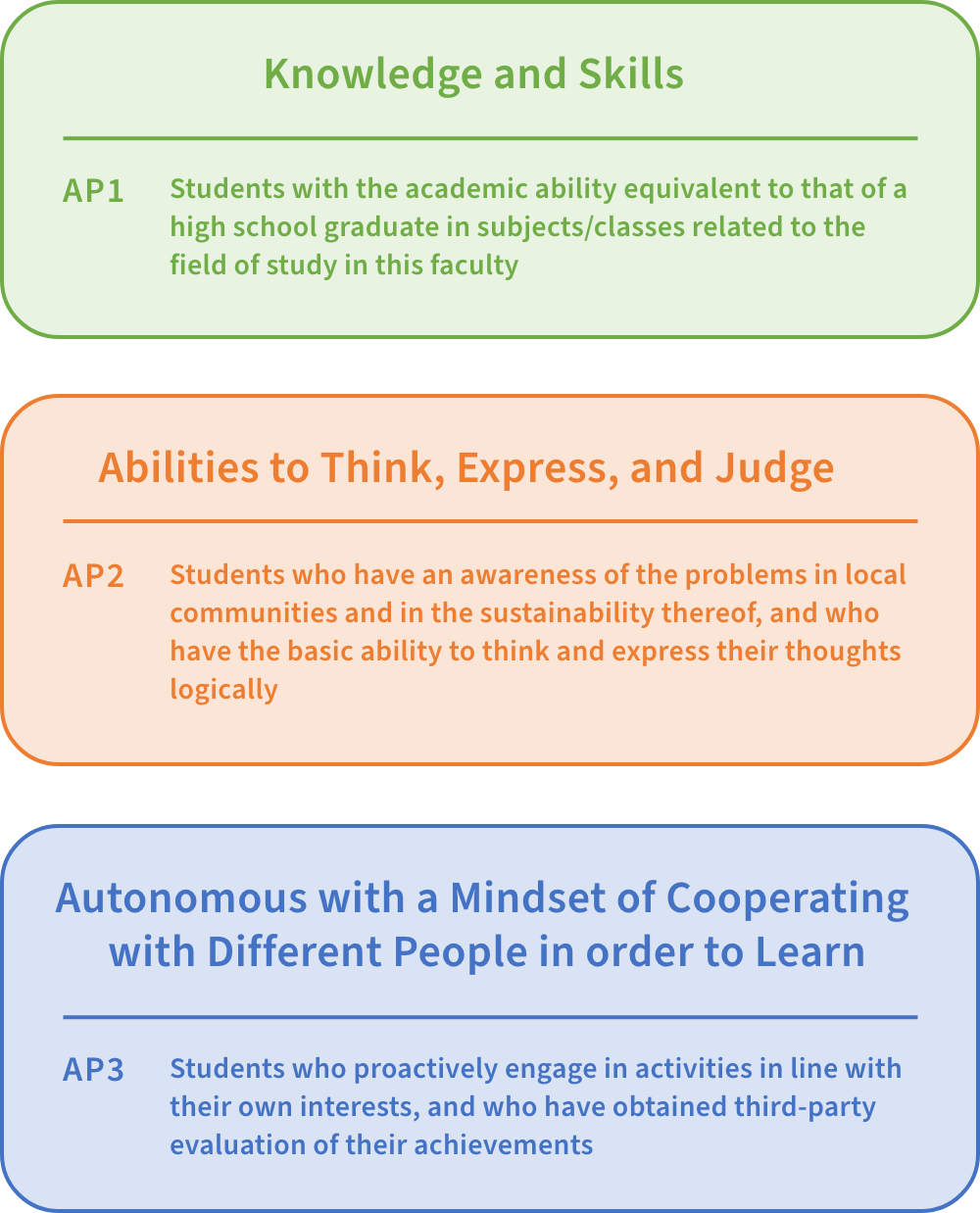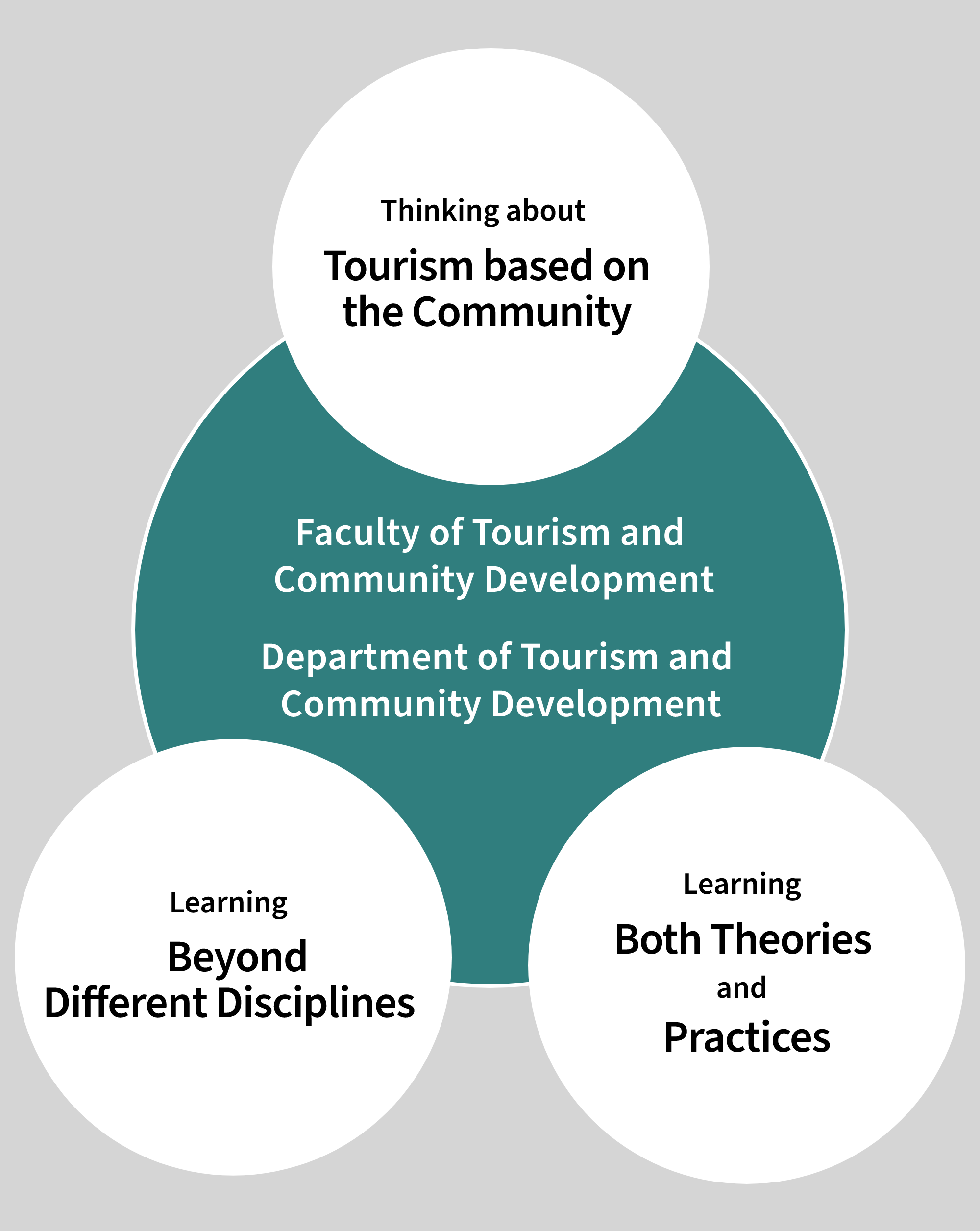- TOP
- Education
- Faculties and Departments
- Faculty of Tourism and Community Development
- Faculty of Tourism and Community Development
Faculty of Tourism and Community Development
Updated on Jan 22 2026
Message from the Dean of the Faculty

Yukio Nishimura, Dean, Faculty of Tourism and Community Development (Professor)
Focusing on Community, Invigorating Community
The above is a short phrase that we use to describe the two pillars of education at the Faculty of Tourism and Community Development. Through our teaching, we want to convey to students the ideas of both “Focusing on Community” and “Invigorating Community” at the same time.
What do we mean by “Focusing on Community”? It means deeply exploring the individuality of the community and rediscovering its potential, not approaching it casually. To do this, we have to look at the community from a variety of perspectives and sharpen our senses to react perceptively to even the smallest things.
The Local identity has diverse aspects, including history, culture, nature, work and lifeways, the wealth of local food, and the everyday landscape. We need to sharpen our intellects to recognize these things broadly and understand their value.
So, what does “Invigorating Community” mean? Of course, “Invigorating Community” is not about promoting it loudly. We need persuasive strategies to share with many people the unique characteristics of the community that emerge from close examination.
While sharing the goal of community development with many colleagues, we need to have the capacity to send a message that reaches people far away, even those who do not live there.
This work deepens interactions, so that more and more people come to visit the community in search of its attractions. Above all, it energizes the local communities themselves.
Welcome to the world of tourism and community development that begins with “Focusing on Community, Invigorating Community”!
-
Faculty interview videos
Yukio NISHIMURA, Professor, Urban Conservation Planning
Tomoya UMEKAWA, Professor, Tourism Policy
Minoru KOBAYASHI, Professor, Folklore
Akio SHIMOMURA, Professor, Landscape Planning
MitsuguHORIKI, Professor, Tourism Resource Management
Satoru ISHIGAKI, Associate Professor, Museology
Guemsun KIM, Associate Professor, Local Governing
Hajime DAIMON, Associate Professor, Transportation Planning
Takafumi MATSUMOTO, Associate Professor, Rural Sociology
Tosei ISHIMOTO, Professor, International Tourism Policy
Chisato KAEDE, Professor, Tourism Media
Akiko SHIIHARA, Professor, Community Encouragement with Arts
Katsushi NAGUMO, Professor, Public Design
Seiji YONEDA, Professor, Tourism and Community Development
Kazuo KASAMI, Associate Professor, Cross-regional Interactions
Takashi SEINO, Associate Professor, Community Development
Mariko FUJIOKA, Associate Professor, Cultural Heritage
Junichi NAKANO, Full-Time Lecturer, Data Science
The objective of education and research in the Faculty of Tourism and Community Development
To establish an academic foundation to build and promote sustainable local communities through tourism and cross-regional interactions, and to develop richly educated human resources who can contribute to the regeneration, revitalization, and development of local communities.
The three policies for Bachelor’s course education in the Faculty of Tourism and Community Development
-
Graduation and degree conferment policy (Diploma policy)
With the objectives of developing methodologies to achieve dynamic local communities from the perspective of Tourism and Community Development and of fostering the human resources who will take charge of putting this into practice, a Bachelor’s degree in Tourism and Community Development will be conferred to those who have completed the education courses designed to instill the following skills and have obtained the required credits.

-
Curriculum organization and implementation policy (Curriculum policy)
The entire curriculum is divided into three phases: introduction, foundation, and development. In the introduction and foundation phases, students study sociology, which will form the basis of their structural view of the state of diverse societies, and they will gradually acquire a basic understanding of the multifaceted impact and influences of tourism and cross-regional interactions on communities and of community development. In the development phase, the program is expanded to include practical and applied learning in a variety of fields related to Tourism and Community Development, depending on the interests and desired career paths of the students.

-
Admissions policy
We welcome students from all over world with an interest in tourism and community development and strong ambition to pursue studies cross the boundaries of existing fields and to play an active role in various fields to contribute to the building and development of vibrant local communities.

We confirm the suitability of the students from the three viewpoints above in each of the processes of general selection, school recommendation type selection, and comprehensive selection. General selection in particular requires a foreign language (English), in addition to which students must take a maximum of five classes from among the subjects of Japanese, geography/history and civics, mathematics, and science. We accept willing and highly motivated students, and do not divide them into humanities and sciences based on their high-school priority classes or other factors.
Characteristics of the Faculty of Tourism and Community Development

Pursuing the ideals of community-based tourism
Until now, tourism has generally been discussed from the industry perspective of travel agencies and accommodation/tourism facilities, but the main distinguishing feature of the Department of Tourism and Community Development is our pursuit of the ideal of community-based tourism with a wide variety of valuable resources. By understanding the internal and external environmental changes and the issues surrounding a community, students rediscover and refine the community’s appeal, leading to the revitalization of the local economy, while learning practical methods of Tourism and Community Development.
From history to urban planning, a variety of approaches to tourism
Another distinguishing feature is allowing students’ interdisciplinary learning that crosses the boundary between humanities and sciences. Tourism and Community Development in the future will require the skills to work with people in various areas by utilizing statistics and data while taking a bird’s-eye view of subjects such as nature, history and culture, public policy, administration and public finance, urban planning, and business management. Seeing this trend, the pillars of our faculty allows students to select from a diverse range of subjects and participate field research that involves cross-disciplinary collaboration in small groups.
Faculty brochure
A faculty brochure to introduce students and their guardians to the distinguishing features, curriculum, and faculty members of the Faculty of Tourism and Community Development.
Community Management Institute
Tourism and Community Development Library
RECOMMENDS
-
{{settings.title}}
{{settings.lead.title}}
{{{settings.lead.letter}}}
{{pages.title}}
{{articles.title}}
Language
SEARCH
{{section.title}}
-
{{item.tagline}}

